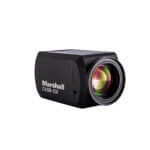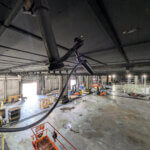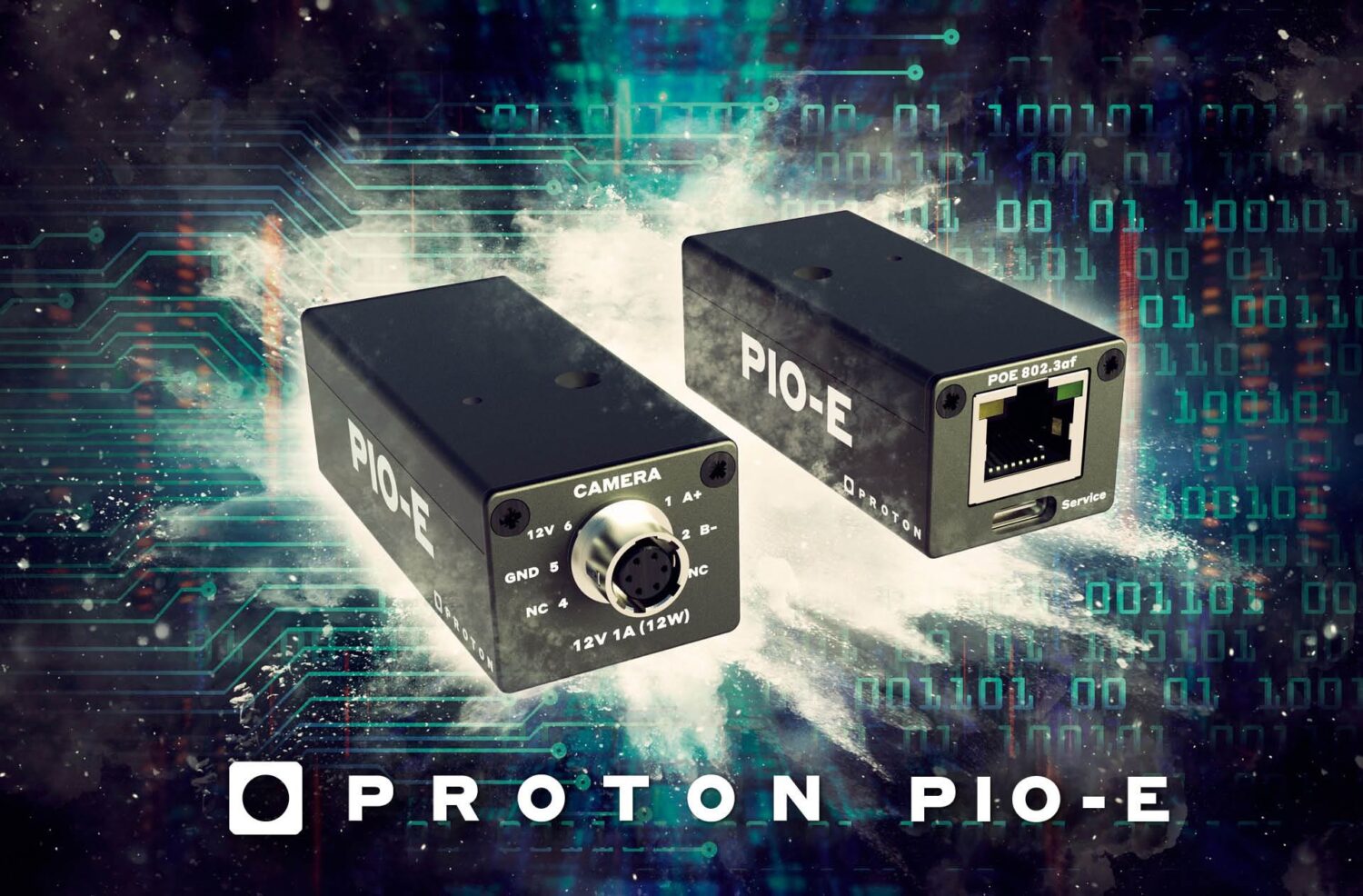New PIO-E box adds IP and Bluetooth control for PROTON mini cameras.
Proton Camera Innovations will introduce a powerful new hardware accessory for its miniaturised camera ecosystem: the Proton PIO-E. Developed in direct response to customer demand for enhanced camera management and remote access workflows, the PIO-E brings IP and Bluetooth control to the full Proton camera range, further expanding the creative and technical possibilities of Proton’s compact broadcast-grade minicams.
The PIO-E (Proton Input/Output Ethernet) unit is a compact, lightweight device measuring just 22 x 27 x 60mm (66mm with Hirose connector) and weighing 60g. It provides 100Mbit Ethernet connectivity with PoE support and converts IP or Bluetooth data to 485 communication protocol for flexible, futureproof integration. Offering compatibility with Cyanview’s systems and automatic network discovery within Proton’s proprietary software, the PIO-E enables remote camera control across multi-camera installations, powering and managing multiple Proton units through a single interface. Power delivery of 12V/1A allows for streamlined cabling and configuration, while Bluetooth integration adds further convenience for quick field deployment, something that will be enhanced yet further with the addition of the forthcoming Proton Bluetooth applications.
The PIO-E joins Proton’s growing lineup of compact, high-performance broadcast cameras – all of which will be on display at IBC2025. Proton’s core camera line-up now features five purpose-built models, each engineered to tackle specific production demands while staying true to the brand’s hallmark of ultra-compact design. Leading the range is the Proton Cam: a flagship unit that remains the smallest broadcast-grade camera available on the market, delivering Full HD resolution, 12-bit processing, and outstanding low-light performance in a chassis just 28mm wide. The Proton Flex extends this imaging capability with a flat ribbon cable layout, separating lens and sensor to enable installation in confined or high-mobility setups. For outdoor and high-impact environments, the Proton Rain reinforces the platform with full weather sealing and shock resistance. The newly released Proton Zoom adds remote-adjustable optical zoom to the line-up, giving operators the ability to reframe shots dynamically without physically moving the camera. Rounding out the range is the Proton HFR, which brings high-frame-rate global shutter capture at up to 240fps, designed for continuous slow-motion output in live workflows.
Across all models, Proton maintains its commitment to 12-bit imaging, interchangeable lenses, and a production-focused blend of uncompromised image quality, cinematic versatility and seamless, reliable workflow. Whether for high-speed sports coverage, cinematic close-ups, or rugged outdoor shoots, Proton’s ecosystem enables broadcasters and filmmakers to push visual boundaries with tools that are smaller, lighter, and smarter. The new PIO-E harnesses all of the potential of Proton cameras and maximises their intuitive usability and flexible deployment, allowing camera management from both near and far.
Speaking of this new addition to the line-up, Marko Höpken, CEO of Proton, commented: “The interest and momentum we’ve experienced since IBC last year has been extraordinary — and it’s driven not only product innovation, but also operational growth. We’ve recently opened a dedicated new production facility for custom component manufacturing, allowing us to meet the rising demand for client-specific configurations. Developments like the PIO-E and the release versions of Proton Zoom and HFR are the direct result of this progress. We’re thrilled to bring these tools to IBC and to continue delivering on our mission to make world-class image capture more accessible, adaptable, and inspiring.”






